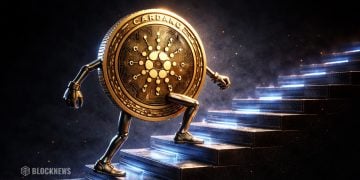• IRS denies that cryptocurrency staking creates new property and says stakers should pay taxes on tokens upon receipt
• The IRS response came in a legal challenge by Joshua Jarrett, a crypto investor who sued over the tax treatment of staking
• The government issued Jarrett a refund check to moot the suit over a prior tax year
In a significant development in the cryptocurrency sphere, the US government has declared that staking a cryptocurrency should induce a tax liability as soon as it is done. This declaration was in response to a legal challenge that was recently brought about.
Staking and Tax Liability: The Central Issue
The issue was brought to light by the Internal Revenue Service’s (IRS) response to a lawsuit filed by Joshua Jarrett, a cryptocurrency investor. Jarrett had filed a suit in the US District Court for the Middle District of Tennessee, challenging the tax treatment of staking. Staking is a process that generates new tokens by using existing tokens and computing power to validate currency transactions.

The IRS’s Stand on Staking and Cryptocurrency Taxation
The IRS, in its response on December 20, refuted the claim that staking creates new property. It asserted that Jarrett should pay taxes on the value of tokens upon receipt. This ruling has significant implications for the cryptocurrency community, especially those involved in staking activities.
Conclusion
This development marks a crucial point in the intersection of cryptocurrency operations and taxation. The IRS’s declaration not only affects current cryptocurrency investors and stakeholders but also sets a precedent for future tax treatments in this rapidly evolving digital currency world.














